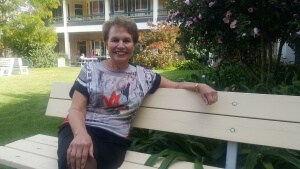Dr Susan Jacobs may be retiring, but a lifelong commitment to learning means she won’t be severing her longstanding connection with EIT for some time yet.
Executive Dean of Education, Humanities and Health Science, Jacobs leaves EIT’s employ after 30 years. However, she intends to continue her te reo and tikanga studies with a course or two in the Bachelor of Arts (Maori) at EIT’s Te Ūranga Waka – “because I like the nature of the study and the environment”.
The study is about stretching herself, she says, rather than adding to her academic qualifications, which include a doctorate in the history of advanced nursing practice.
Born in the USA, Jacobs relocated to New Zealand in 1986, when she took up the position of associate head of school, nursing and health studies at what was then called Hawke’s Bay Polytechnic.
She and husband Cap, disillusioned with aspects of the American socio-political environment, had pinpointed Hawke’s Bay for a possible move after spotting an article about New Zealand’s “fruit basket” in a back issue of National Geographic.
The blended family included two younger children, then primary school-aged, who independently decided to take up New Zealand citizenship several years after settling in Hawke’s Bay. One was Jennifer Roberts, who followed her mother into a nursing career and is now assistant head of EIT’s School of Nursing.
Having gained her nurse registration, Jacobs worked for 11 years in clinical nursing practice in the US. For the next seven, she taught nursing and pathophysiology at Portland Community College.
“I loved the practice,” she says, “but I think I always wanted to teach. There’s something exciting about helping the next generation or inspiring someone to like something as much as you do.”
Jacobs was well placed for a move into academia – “In addition to my nursing degree, my master’s degree was in physiology, with a minor in biochemistry and a tertiary teaching internship.”
Curriculum development has been an important part of her role at EIT and is continuing as she and a team of academics work on a new master’s degree in professional practice informed by mātauranga Māori (Māori knowledge) and designed for people working in “social and cultural” fields such as social work, education, counselling and iwi development.
She has led and/or co-developed a long list of programmes, most recently Te Hono ki Toi/Master of Professional Creative Practice – a collaborative master’s offered by ideaschool in Hawke’s Bay and Toihoukura at EIT Tairāwhiti.
“Maybe building curriculae is a creative act,” she suggests. “I like the idea of exploring how to put together programmes that have a structure and a philosophy that ideally assist graduates to have better opportunities for themselves, but also to be able to give back to their communities.”
An example of that has been Master of Nursing programme, launched by EIT in 2002 following the Bachelor of Nursing, EIT’s first degree in 1996.
Jacobs says she still meets Hawke’s Bay people who don’t know that EIT’s extensive suite of qualifications includes 12 bachelor and five master degrees.
“I think EIT is the best kept secret in the region. It’s a little gem in their backyard.”
From assistant head of school to head of school for nursing and health studies and then to dean of the Faculty of Health and Sport Science, she took on an even broader range of responsibilities following a restructuring of EIT’s faculties in 2014.
In 2015, Jacobs’s significant contribution to nursing education was officially recognised when she was made a member of the New Zealand Order of Merit.


